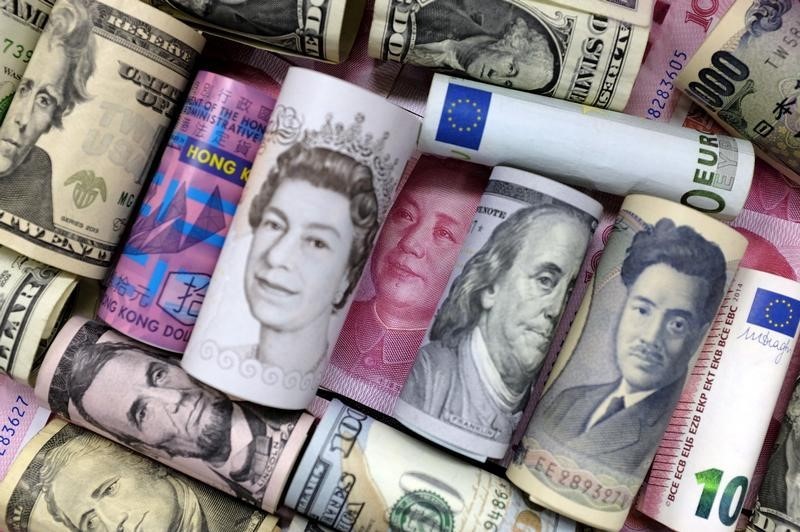By Patrick Graham
LONDON (Reuters) - The euro fell back on Friday after a shocking series of moves generated by Thursday’s European Central Bank meeting ended with its biggest gain in a month, undermining the case of those still calling for a fall to parity with the dollar.
The ECB took bold easing steps, including an expansion in asset buying and a deeper cut to already negative deposit rates that added up to far more than the market had expected and that should have weakened the euro.
But President Mario Draghi's comment that he expected the bank might not have to cut rates further fed concerns that officials in Europe and Japan are running out of ideas on how to weaken their currencies and raise inflation.
After a surge to more than $1.12 on Thursday, the euro eased almost 1 percent to $1.1085 in morning trade in Europe.
"A few months ago, if you had expected such measures were going to be deployed, you would have thought the euro would fall 3 percent," said Gian Marco Salcioli, head of FX sales at Italy's Intesa Sanpaolo (MI:ISP) Banca IMI (LON:IMI) in Milan.
"Going forward, this is not risk positive, and it is probably euro supportive but we need to see the price action of the next few days."
The 4-cent spread between the euro's highs and lows on Thursday equaled any of the euro's most volatile days over the past five years and were similar to moves after two of the past year's key ECB meetings - in December and last March.
After Japan's failure to cap the yen with a move to negative interest rates last month, the euro's gain weakens the argument made by many banks over the past year that higher U.S. interest rates will steadily strengthen the dollar against the euro and yen.
But there were still some notes of caution from many in the market on Friday. Richard Cochinos, an analyst with the market's biggest banking player, Citi, said its numbers showed that hedge funds had sold the euro on Thursday and longer-term "real money" institutional investors had been flat on the day.
"Major players sat on the sidelines, both leading up to the ECB announcement and post and this may be a good place to be right at the moment," said Tobias Davis, head of corporate FX sales at Western Union in London.
"It is the oil move that has created most of today's opportunities."
A more than 2 percent rise in U.S. and Brent crude boosted both stock markets and a range of higher-yielding currencies including the Canadian and Australian dollars
The dollar index (DXY), having fallen sharply on the euro's broad strength, recovered around half a percent from a one-month low of 95.939 hit in U.S. trading.
The focus will now shift to a March 14-15 Bank of Japan policy meeting. The BOJ is widely expected to stand pat on monetary policy after adopting negative rates in January, but some speculate it could lower rates further.
"I don't think the BOJ will ease next week. That said, the ECB's easing was a full spectrum one, and the market will approach the BOJ meeting thinking anything could be possible," said Koji Fukaya, president of FPG Securities in Tokyo.
"As for the ECB's easing, it is after all a 'risk on' factor. Its effects could be felt gradually and curb yen strength."

The dollar was up 0.5 percent at 113.74 yen <JPY=>, having dipped to 112.75 in Asian time. It is still within striking distance of a 16-month low below 111 yen hit last month in response to concerns over banks and the pace of global growth.